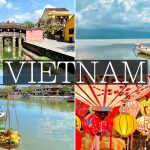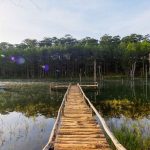Tran Quoc Pagoda is the oldest of its kind in Hanoi, dating back to the 6th century during the reign of Emperor Ly Nam De Dynasty (544 – 548). The Buddhist shrine has undergone several changes throughout the years, particularly its renaming from An Quoc to Tran Quoc (protecting the country) by Emperor Le Huy Tong in the 17th century.
Although it’s now set on an islet within West Lake, the pagoda was originally located on banks of Red River before it’s relocated in 1615due to the river’s encroachment. Surrounded by lush greenery, Tran Quoc Pagoda was a favourite amongst the kings and royal families for festivals, full moons, and Tet Festival.
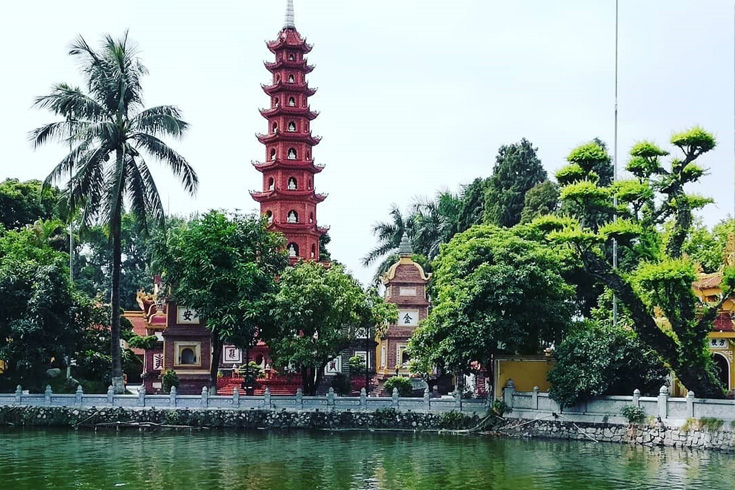
With a history of over a thousand years, it used to be the capital of Buddhism during the Tran dynasty and now considered as a symbol of Hanoi capital, both in the past and today.
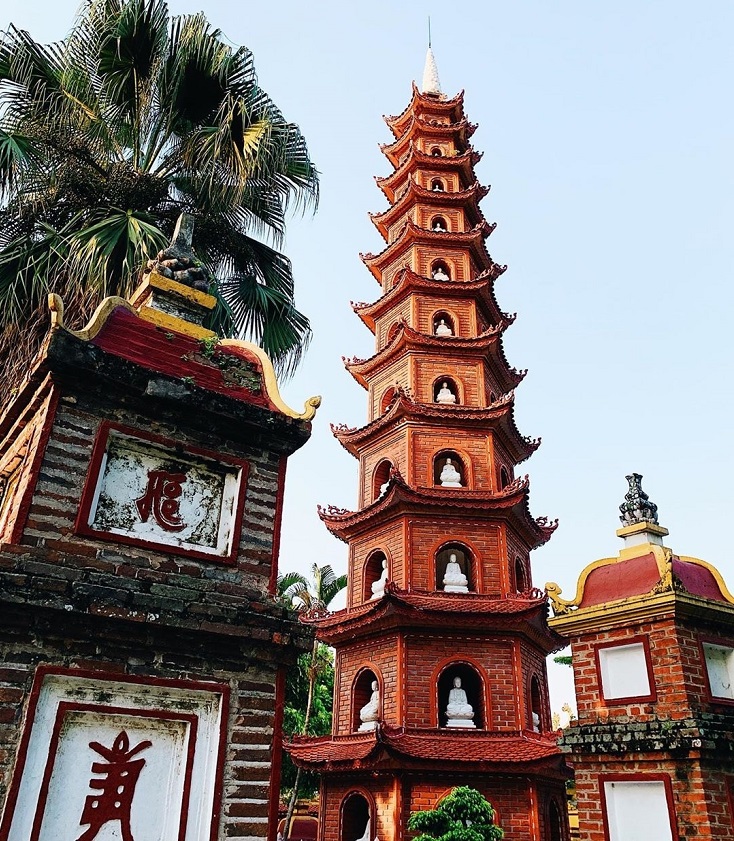
Standing at 15 metres, the main pagoda is made up of eleven levels, while its surrounding buildings include an incense burning house and a museum housing historic relics. You can also see intricately carved statues dating to 1639, each of which bear unique facial feature.
Thanks to its advantageous location just right beside the dazzling West Lake and on an island which is linked by a bridge between the two most romantic lakes of Hanoi, which are Truc Bach Lake and West Lake, the pagoda attracts a lot of tourists each day.
WEST LAKE HANOI – WHAT YOU NEED TO KNOW
Its entrance is a unique point of the pagoda. When seeing the gate from afar, it looks deflected, but there is no sense of it at all when approaching there.
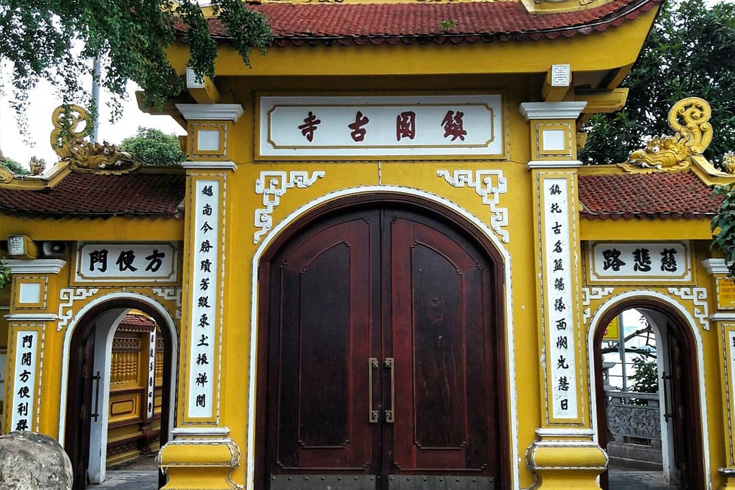
Going through the gate, you need to follow the way which is paved with red brick to see the interior space.
- Tien Duong (the Front House) is located in front of the bell tower and faces the west. In front of the Front House, there is an incense burner in the yard so the Buddhists and tourists can thurify.
- Nha To (the Ancestor House) is on the right of Tien Duong, worshipping the previous generation of monks.
- Nha Bia (the Stele House) is on the left of Tien Duong, holding 14 important steles engraved from 1813 to 1815. It shows the renovating process of the pagoda after a long time in ruin.
The three main houses are connected and make the pagoda look like a blooming lotus. It can be said that Tran Quoc pagoda is a harmonious combination of the serene ambiance of green garden, far-flung lake, and ancient and imposing architecture. That’s why it was recognized as a national monument in cultural and historical values by the Ministry of Culture and Information in 1962.
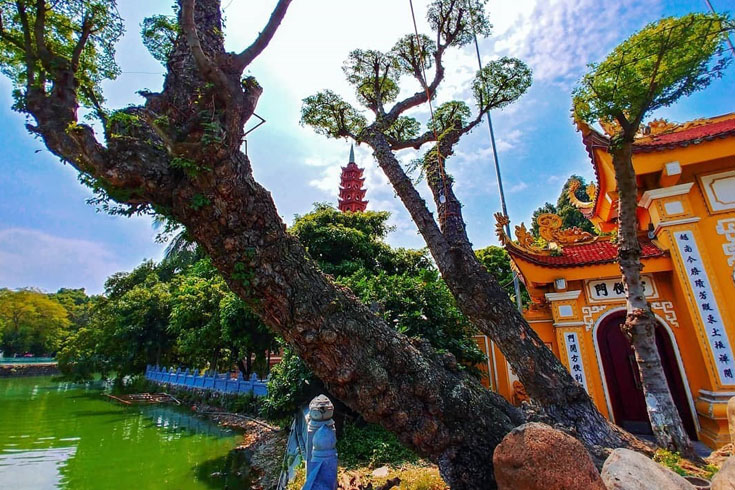
Open daily from 07:30 onwards, Tran Quoc Pagoda is free to enter all year long, though it gets packed with devotees during annual festivities such as Tet and Buddha’s Birthday. As it’s a place of worship, visitors are advised to dress conservatively out of respect for the monks and locals.
Because the pagoda is a holy sanctuary, visitors must wear clothes that strictly follow a fixed dress code. Remember to wear an appropriate outfit and do not wear skin-showing clothes.
HANOI’S PACKAGE TOURS IN 4 DAYS 3 NIGHTS ~ 1 NIGHTS IN HA LONG BAY CRUISE
Just like when you enter any other pagodas in the world, please take off hats, umbrellas, and shoes before coming into the shrines for worshipping. It shows your respect to the gods and the pagodas.
With all the historical and architectural values it possesses, Tran Quoc Pagoda is not only worth visiting as a sacred sanctuary of Buddhism attracting countless Buddhist believers; but also an indispensible destination for cultural explorers to Vietnam.


